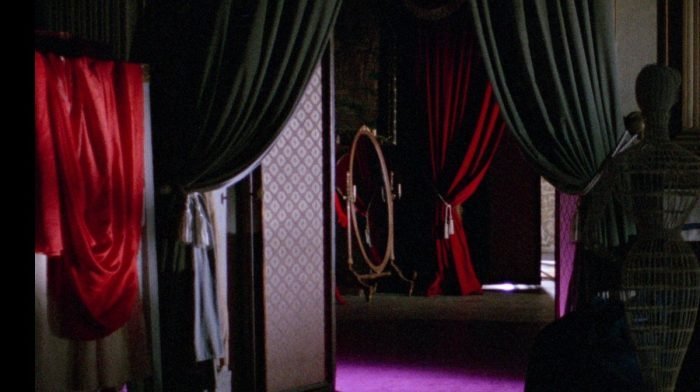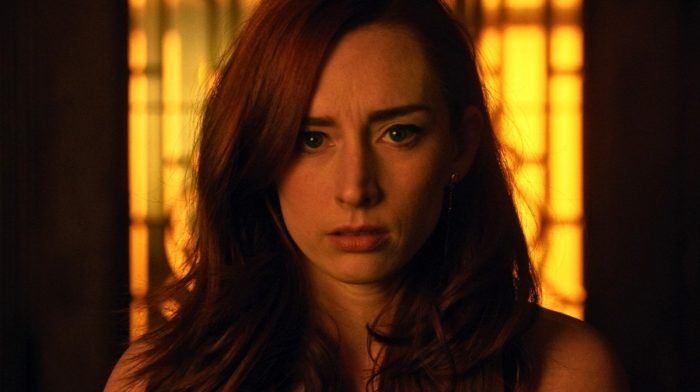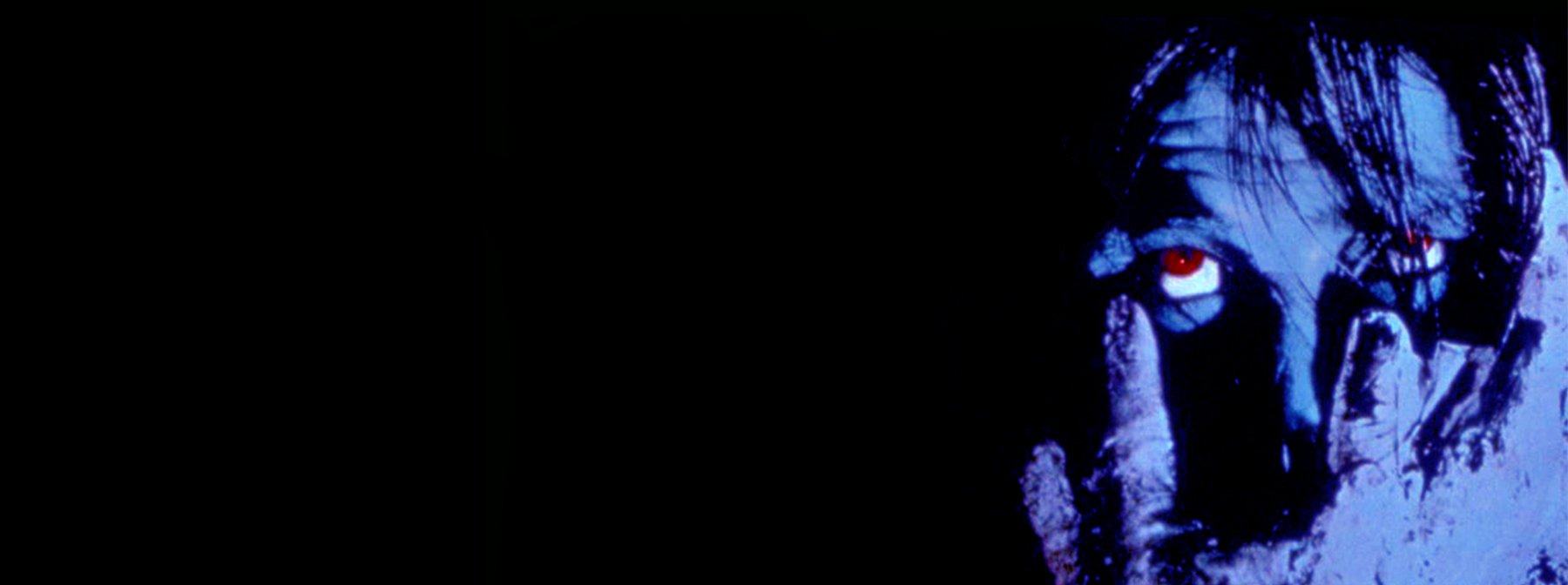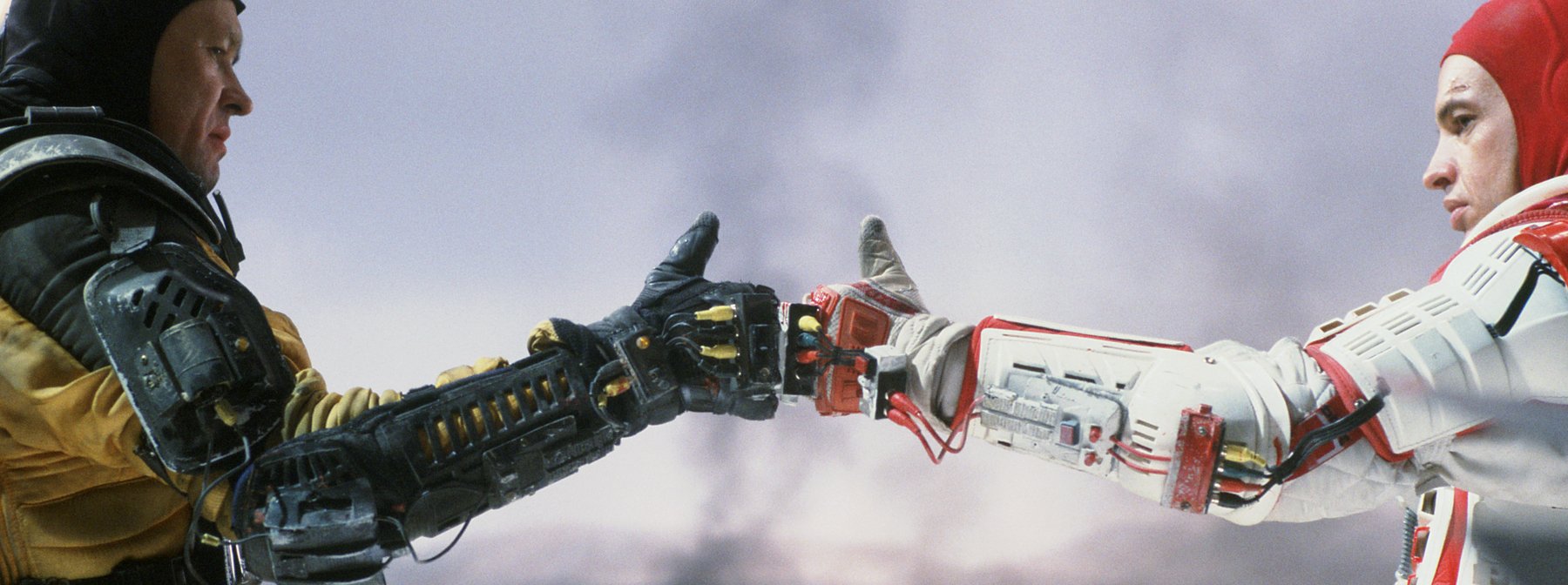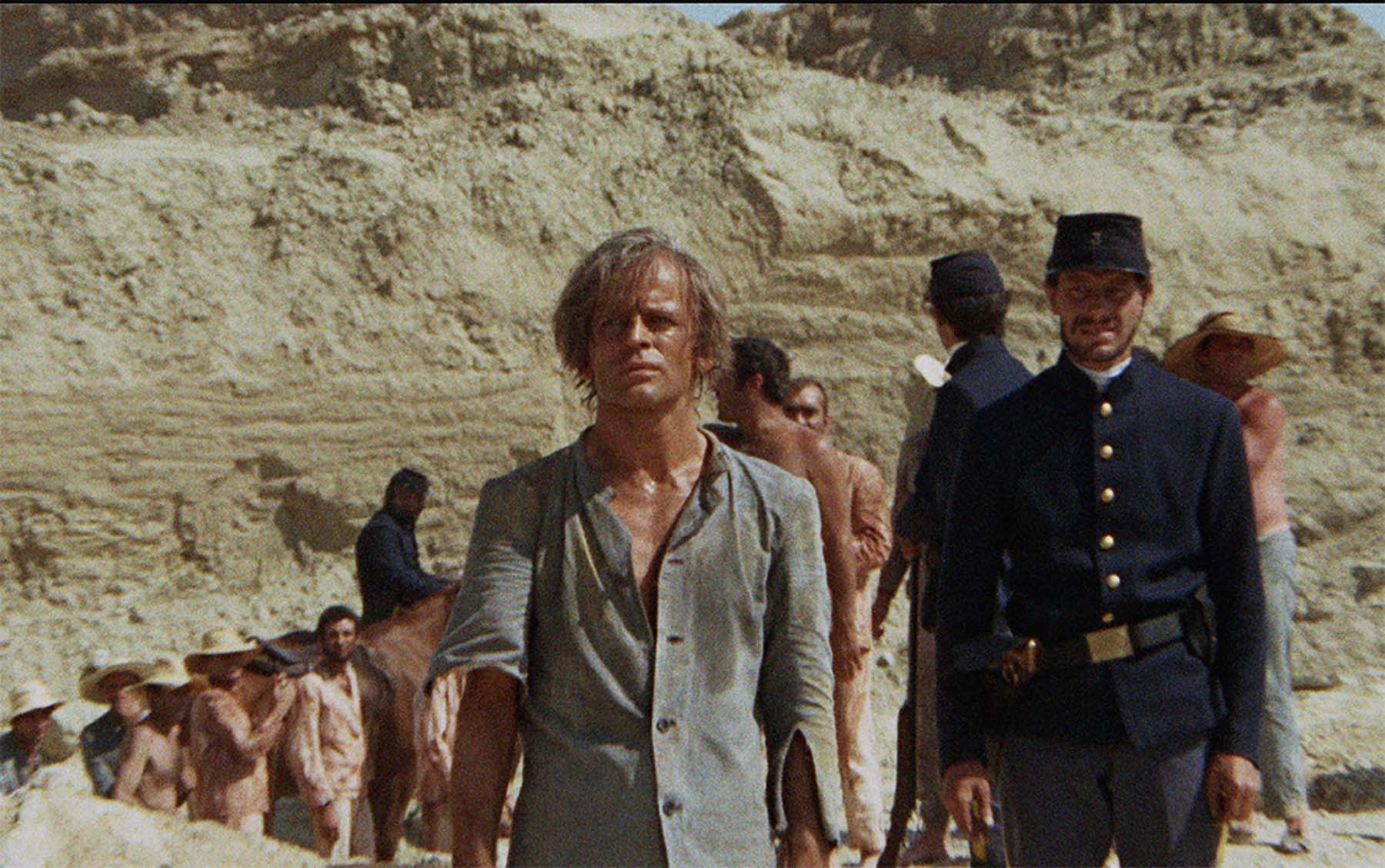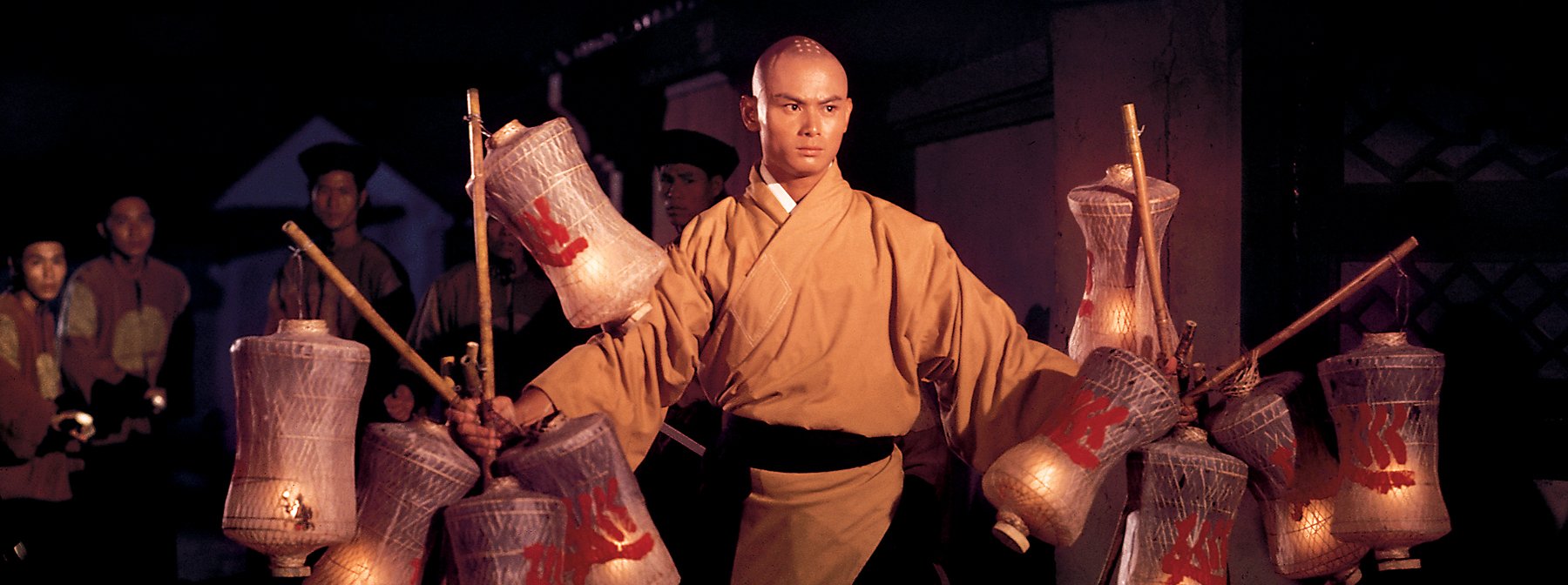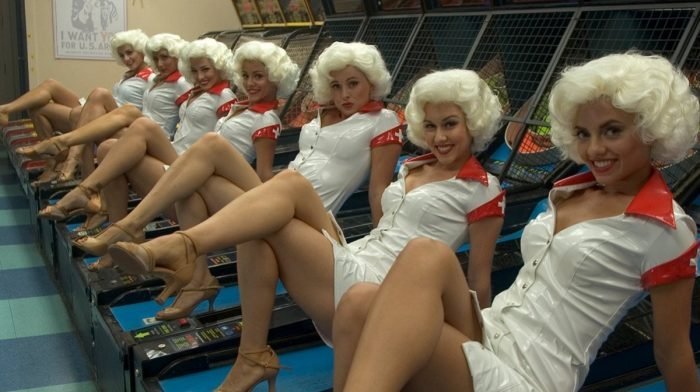California, 1939: puppeteer André Toulon completes his latest creation – Jester, a harlequin – before bestowing it with a unique flourish. Pursued by Nazi spies, Toulon gathers his creations and hides them away safely – before calmly and with conviction, killing himself…
The inaugural entry in the prolific Puppet Master series made its debut as the premiere production of the fledgling Full Moon Productions, the second studio founded by Charles Band after the collapse of his first, Empire Pictures. Puppet Master – written by Band and Kenneth J. Hall, and directed by David Schmoeller – was intended as a no-holds-barred theatrical debut for the new studio, but ultimately received an auspicious home video premiere via Paramount instead. The film achieved enviable success on the home video market – as predicted by Band, responsible for the change of release model personally – leading to the swift production of a sequel, resulting in a significant cult following and the decades-long franchise we know today.
Toulon (played by William Hickey) – the title character of Puppet Master – has discovered the secret of gifting life to the inanimate through an ancient Egyptian formula. Fifty years later after his suicide, Toulon’s secret is re-discovered by psychic Neil Gallagher (Jimmie F. Skaggs), who contacts his friends Alex (Paul Le Mat), Dana (Irene Miracle), Frank (Matt Roe), and Carrisa (Kathryn O’Reilly), who descend upon Toulon’s former abode only to discover their friend has also committed suicide. Along with Neil’s widow Megan (Robin Frates), the group aims to discover the secrets of the Puppet Master… but also find that some secrets should stay hidden.
Band’s aim with Full Moon was simple: to produce modestly-budgeted genre fare without the obvious visual trappings of limited finances. The production model was an unlikely success, and Paramount’s VHS release of Puppet Master in 1989 was followed by further Full Moon productions, including Shadowzone, Meridan: Kiss of the Beast, Crash and Burn (all 1990), and Puppet Master II (1991). Neither Hall or Schmoeller returned for the sequel, but Band remained as producer, with Steve Welles taking over from Hickey in the role of Toulon. Band would remain creatively involved to varying degrees – cycling between producer, writer, and director, often doubling or tripling duties – with every entry in the original cycle of films.
Puppet Master II was swiftly followed by Puppet Master III: Toulon’s Revenge in 1991, serving as a prequel to the first two installments. Toulon’s Revenge featured the debut of Guy Rolfe as Toulon, who would reprise the role in two immediately subsequent films, as well as one later entry. The fourth and fifth entries – Puppet Master 4 and Puppet Master 5: The Final Chapter – were produced simultaneously and released in 1993 and 1994, with Band’s intention afterward to retire the franchise and move forward with a spin-off trilogy, Puppet Wars, which ultimately never came to fruition. For the time being, Puppet Master hung up its strings and survived in pop-culture consciousness with a slew of merchandise and a dedicated fan following.
After a hiatus of four years, fan and video retailer demand saw the franchise revived with Curse of the Puppet Master in 1998. Unfortunately, Curse heralded the departure of several key figures crucial to the success of the series, notably stop-motion animator David W. Allen and Paramount, having ended its distribution agreement with Full Moon. As a budget-saving exercise, Curse of the Puppet Master instead employed rod and string puppets in lieu of stop-motion animation. These were embellished with liberal use of archival special-effects footages from previous entries.
1999 saw the release of Retro Puppet Master, an additional prequel taking the franchise even further back than Toulon’s Revenge, with Guy Rolfe returning as Toulon alongside Greg Sestero – of The Room fame – as the chronologically younger incarnation of the Puppet Master. An abandoned idea for the seventh installment picked the narrative up after Toulon’s Revenge, with the title character escaping Nazi Germany with his creations, only to be confronted by a band of demons. Fearing pushback from German audiences, the idea was abandoned but would inform later series entries. An eighth film, Puppet Master: The Legacy, appeared in 2003, but made even more liberal use of footage from previous entries to summarize the series. The following year saw crossover feature Puppet Master vs. Demonic Toys – starring Corey Feldman – debut on Syfy.
Band attempted a revival of the Puppet Wars concept as a television series in 2005, but this again never gained traction, paving the way for the ninth entry, Puppet Master: Axis of Evil (2010). Utilizing concepts from the initial abandoned plans for the seventh installment, Axis of Evil initiates a new prequel trilogy (taking place after Toulon’s Revenge and Retro Puppet Master, but before the original 1989 film and its direct sequels) chronicling the misadventures of the puppets during World War II. Axis of Evil was followed by Puppet Master X: Axis Rising in 2012, and Puppet Master: Axis Termination in 2017, concluding the original cycle of interconnected films.
With Axis Termination yet to release, a series reboot – Puppet Master: The Littlest Reich – was announced in 2016. The franchise rights were optioned by Di Bonaventura Pictures and Cinestate, with Sonny Laguna and Tommy Wiklund directing, and S. Craig Zahler – of Bone Tomahawk and Brawl in Cell Block 99 fame – writing the screenplay. Legendary German character actor Udo Kier inherited the role of Toulon – transforming the character into an embittered Nazi rather than an opponent of the Third Reich – while the equally-legendary Fabio Frizzi composed the score.
The original narrative was resumed in 2020 with the release of the spin-off feature Blade: The Iron Cross, while plans remain active for Doktor Death, a spin-off focusing on the character of the same name featured in Retro Puppet Master. Regardless of what lies ahead for the cult-favourite franchise, much like the animated terrors that define it, it’s almost certain to rise again. With the original series now streaming on Arrow Player, the time has never been better to delve back into the toy chest and rediscover the secrets of the Puppet Master. After all – evil comes in all sizes…
The Puppet Master Collection featuring all 12 Puppet Master films is available to watch on ARROW.

